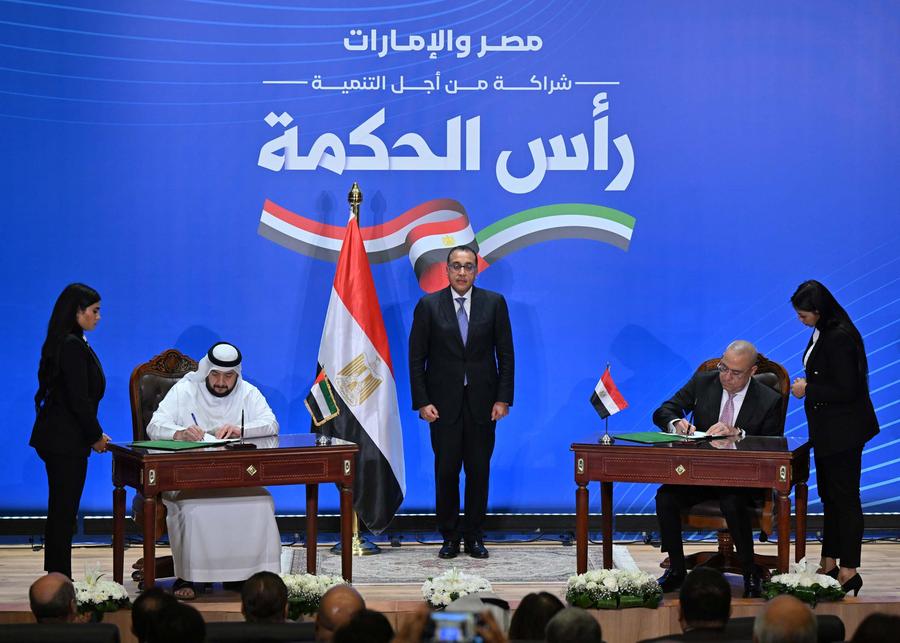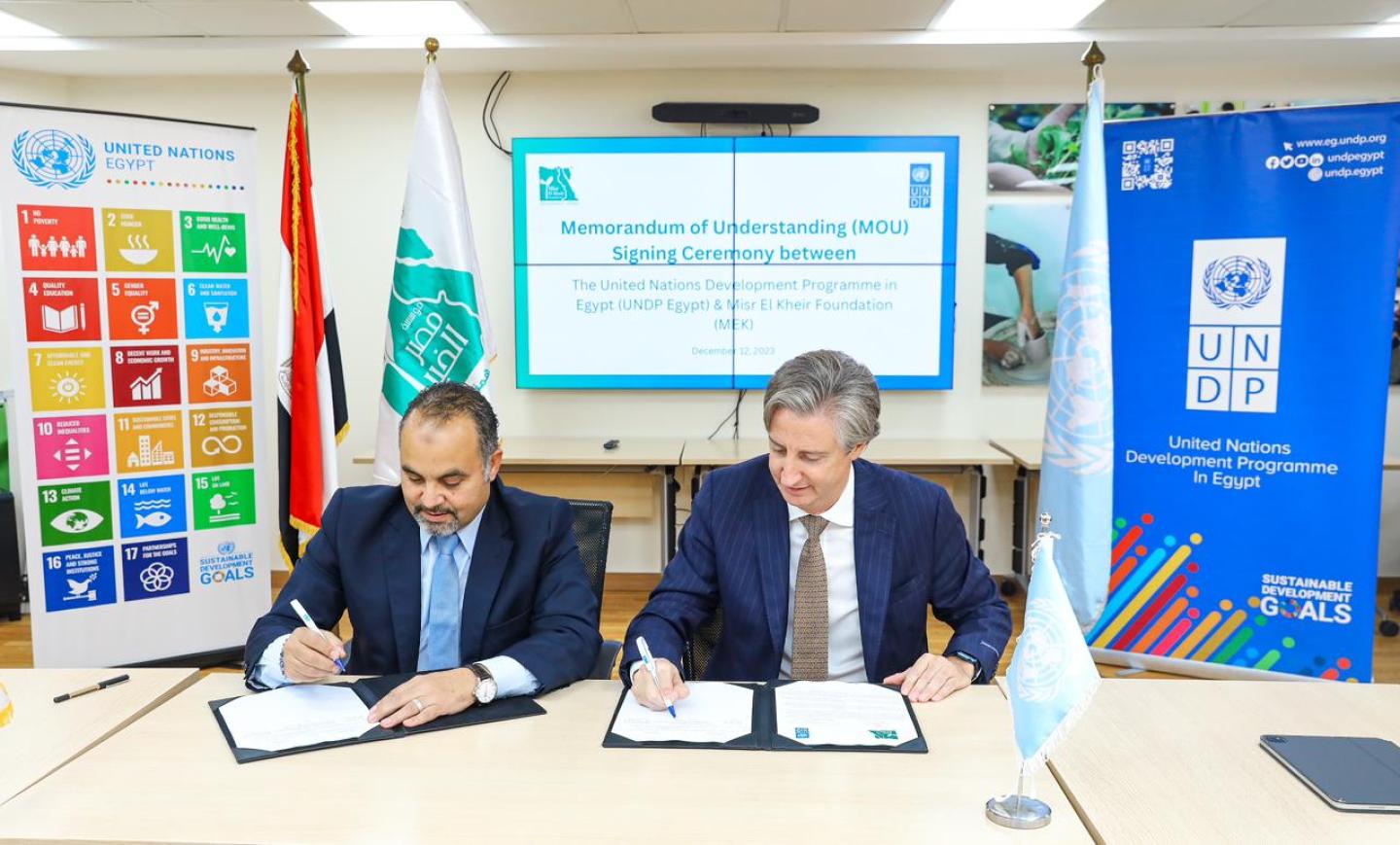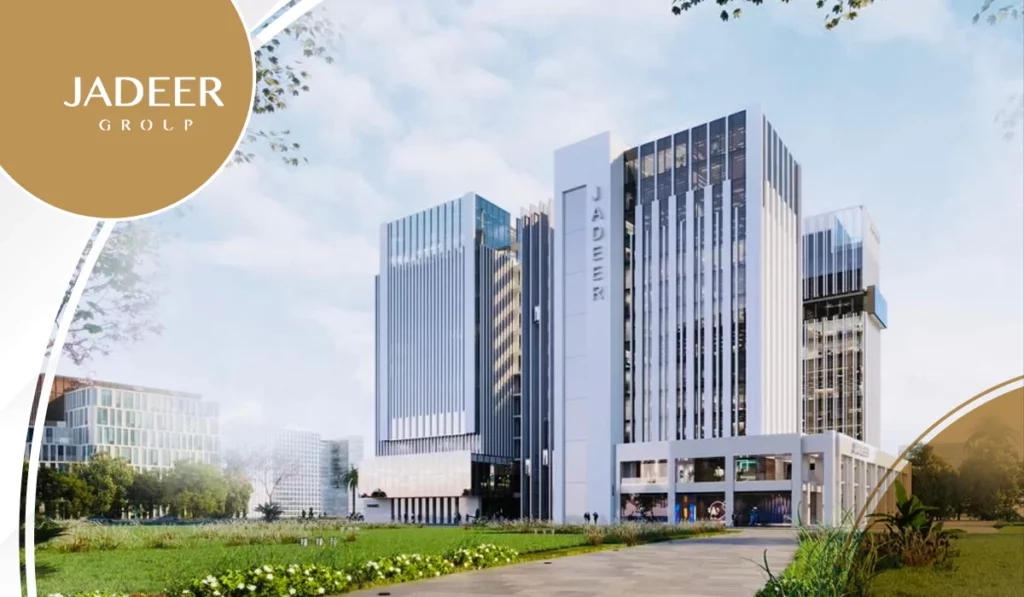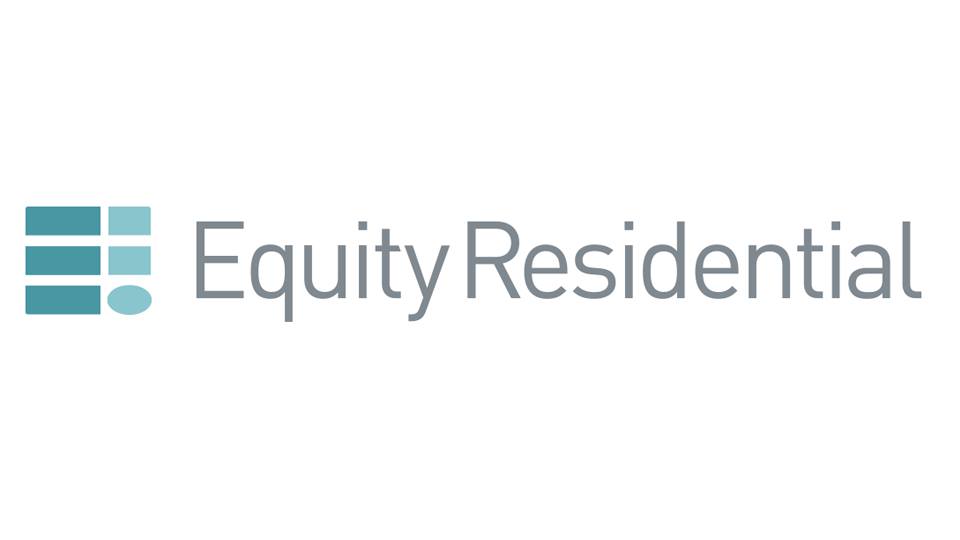United Arab Development Egypt (UADE) is a joint venture between Egypt and the United Arab Emirates (UAE) that aims to boost Egypt’s economy through foreign investment. The UAE has pledged to invest $35 billion in Egypt, the most significant investment deal in history. The investment will develop a prime stretch of land on Egypt’s Mediterranean coast called Ras El-Hekma.
Egypt has been struggling with a chronic shortage of foreign currency, and investment from the UAE will help mitigate the economic crisis. The Abu Dhabi-based sovereign wealth fund ADQ will acquire the development rights for Ras El-Hekma for $24 billion. The development project will create jobs and attract tourism, further boosting Egypt’s economy.
The UADE project is a significant milestone in the relationship between Egypt and the UAE. It demonstrates the UAE’s confidence in Egypt’s economic potential and commitment to supporting its development. The project will positively impact both countries and strengthen their economic ties.
Economic Landscape of Egypt
Egypt has one of the largest and most diversified economies in the Middle East and North Africa (MENA) region. The country’s economy has undergone significant changes in recent years, with the government implementing economic reforms aimed at improving the country’s macroeconomic stability, increasing foreign investment, and boosting economic growth.
Impact of Foreign Investment
Foreign investment has played a vital role in Egypt’s economic growth. To attract foreign investment, the country has carried out some economic reforms, including the liberalization of trade and investment policies, the simplification of investment procedures, and the establishment of a one-stop shop for investors. These reforms have helped to increase foreign investment in the country, particularly in the energy, tourism, and real estate sectors.
Currency and Inflation Challenges
Egypt’s economy has faced significant challenges in recent years, including high inflation and a shortage of foreign currency. Inflation has been a persistent problem in Egypt, with the country experiencing double-digit inflation rates in recent years. The government has implemented a series of measures to address inflation, including the liberalization of the exchange rate, the reduction of fuel subsidies, and the implementation of value-added tax (VAT).
Egypt’s Response to Economic Crisis
Egypt has been hit hard by the global economic crisis, with the country experiencing a severe economic downturn in recent years. The government has responded to the situation by implementing economic reforms to stabilize the economy, boost economic growth, and reduce the country’s foreign debt. These reforms have included the implementation of a loan program with the International Monetary Fund (IMF), the liberalization of the exchange rate, and the reduction of fuel subsidies.
In conclusion, Egypt’s economy has undergone significant changes in recent years, with the government implementing economic reforms to improve the country’s macroeconomic stability, increase foreign investment, and boost economic growth. While the country has faced significant challenges, including high inflation and a shortage of foreign currency, the government has responded to these challenges by implementing a series of economic reforms to stabilize the economy and reduce the country’s foreign debt.

United Arab Development Initiatives in Egypt
The United Arab Emirates (UAE) has been a significant investor in Egypt, focusing on strategic investment sectors. These initiatives have been driven by major Emirati investment entities, bilateral economic agreements, and the UAE’s sovereign wealth fund.
Strategic Investment Sectors
The UAE has invested significantly in Egypt’s strategic investment sectors, including energy, infrastructure, and tourism. The Abu Dhabi Development Holding Company (ADQ), a sovereign wealth fund of the UAE, has invested in several development projects in Egypt, including the development of the Abu Dhabi Plaza in Cairo.
Major Emirati Investment Entities
The UAE has several major investment entities in Egypt, including Mubadala Investment Company and Dubai Investments. Mubadala has invested in several sectors, including energy and real estate, while Dubai Investments has invested in the construction and manufacturing sectors.
Bilateral Economic Agreements
The UAE and Egypt have signed several bilateral economic agreements to strengthen their economic ties. These agreements have focused on increasing trade and investment and promoting joint ventures and partnerships between Emirati and Egyptian companies.
The UAE’s investments in Egypt have contributed significantly to the country’s economic development, creating job opportunities and boosting economic growth. The UAE’s commitment to investing in Egypt’s strategic investment sectors, major investment entities, and bilateral economic agreements will continue to drive economic growth and development in Egypt.
Infrastructure and Urban Development
Egypt is experiencing rapid infrastructure and urban development, with several large-scale projects underway. These projects have been designed to accommodate the country’s growing population and boost economic growth. In this section, we will examine some of the key projects and developments currently underway in Egypt.
New Administrative Capital
One of the most important infrastructure projects currently underway in Egypt is constructing the New Administrative Capital. This new city is being built east of Cairo and will become the country’s new administrative and financial hub. The project is being developed by the United Arab Development Egypt company, a joint venture between the Egyptian government and the UAE’s Capital City Partners.
The New Administrative Capital intends to accommodate up to 6.5 million residents and will feature a range of residential, commercial, and administrative buildings. The city is also set to become a hub for technology and innovation, focusing on sustainable development.
Transportation and Logistics Expansion
In addition to the New Administrative Capital, Egypt is also investing heavily in its transportation and logistics infrastructure. The country is currently undertaking various projects to improve connectivity and reduce congestion.
One of the most significant transportation projects is expanding the Cairo metro system. The expansion will add several new lines to the existing network, increasing its capacity and improving connectivity across the city.
Egypt is also investing in its ports and airports, with several new developments underway. The Suez Canal’s expansion has also helped boost the country’s logistics sector, making it easier and faster for ships to transport goods between Asia and Europe.
Residential and Commercial Developments
Egypt also invests in other residential and commercial developments alongside the New Administrative Capital. One of the most significant is the development of the Sphinx International Airport City. This new city is being built west of Cairo and will feature a range of residential, commercial, and leisure facilities.
Other significant developments include the El Galala Mountain Resort and the Alamein Towers project. These projects seek to boost tourism and create new job opportunities in the country.
Overall, Egypt’s infrastructure and urban development projects will transform its economy and provide new opportunities for its citizens. With continued investment and development, Egypt is well-positioned to become a hub for business, innovation, and sustainable development in the region.
Tourism and Cultural Investments
Egypt owns a rich cultural heritage and a booming tourism industry. United Arab Development Egypt recognizes the importance of investing in tourism and artistic projects to promote economic growth and job creation. The following subsections outline some initiatives that United Arab Development Egypt is undertaking to revitalize Egypt’s tourist destinations, develop new tourist resorts, and create cultural and entertainment venues.
Revitalizing Egypt’s Tourist Destinations
United Arab Development Egypt is committed to revitalizing Egypt’s existing tourist destinations to attract more visitors and create jobs. The company is investing in renovating and modernizing existing hotels, resorts, and other tourist facilities to improve the overall tourist experience. This investment will help Egypt maintain its position as one of the top tourist destinations in the world.
Development of New Tourist Resorts
United Arab Development Egypt is also developing new tourist resorts along the Red Sea and Mediterranean coastlines. These resorts will feature white sand beaches, marinas, and other amenities to attract visitors worldwide. In addition to creating new jobs, these resorts will boost local economies by attracting investment and increasing tourism revenue.
Cultural and Entertainment Venues
United Arab Development Egypt invests in developing cultural and entertainment venues to enhance the tourist experience. These venues will include amusement parks, entertainment venues, and other attractions to appeal to a wide range of visitors. By investing in these projects, United Arab Development Egypt is helping to promote Egypt’s rich cultural heritage and create new job opportunities in the entertainment industry.
In conclusion, United Arab Development Egypt is committed to investing in tourism and cultural projects to promote economic growth and job creation in Egypt. By revitalizing existing tourist destinations, developing new resorts, and creating cultural and entertainment venues, United Arab Development Egypt is helping to promote Egypt as a top tourist destination worldwide.
Education and Technology Advancements
Investments in Universities and Schools
United Arab Development Egypt has made significant investments in education, particularly in universities and schools. The government has allocated a substantial portion of its budget towards improving the quality of education, providing better facilities, and hiring qualified teachers. These investments have increased the number of students enrolling in universities and schools across the country.
The government has also implemented policies encouraging private-sector investment in the education sector. This has led to the establishment of private universities and schools, which have further contributed to the growth of the country’s education sector.
Technology Infrastructure and Innovation
United Arab Development Egypt recognizes the importance of technology in education and has made significant efforts to improve technology infrastructure in universities and schools nationwide. The government has invested in providing students and teachers with high-speed internet connectivity, computer labs, and other technological resources.
In addition, the government has encouraged the use of technology in education through various initiatives. For example, the Digital Transformation Collaborative (DTC) is a group of professionals in education technology from the Global Education Coalition, representing multilateral organizations, the private sector, Telcos, NGOs, funds, and foundations, who have been working together to improve the use of technology in education in Egypt.
Egypt is also featured as a champion in the introduction of the GEM Report, which includes a case study dedicated to the country’s experience in adopting technology in education. The report provides recommendations for further improving the use of technology in education in the country.
Furthermore, partnerships with private sector entities such as Orange Egypt have been established to provide free SIM cards for tablets distributed by the Ministry of Education to schools and free internet access for students learning on tablets at the Digital School.
Overall, United Arab Development Egypt’s investments in universities and schools, as well as its efforts to improve technology infrastructure and innovation in education, have contributed to the growth and development of the country’s education sector.
Business and Investment Climate
Investment Zones and Opportunities
United Arab Development Egypt is committed to creating a favorable business and investment climate. The government has identified several attractive investment zones and opportunities for local and foreign investors. The investment zones include the Suez Canal Economic Zone, the New Administrative Capital, and the Golden Triangle Development Zone.
The Suez Canal Economic Zone is a strategic location that provides investors access to major shipping routes and markets. The New Administrative Capital is a new city being developed to alleviate congestion in Cairo and offer a modern business environment. The Golden Triangle Development Zone is located in Upper Egypt and focuses on developing the agriculture and tourism sectors.
Investors in Egypt can benefit from various incentives, such as tax breaks, streamlined procedures, and access to financing. The government has also established a one-stop shop for investors to facilitate the investment process.
Legal and Regulatory Framework
Egypt’s legal and regulatory framework intends to protect investors and ensure a level playing field. The government has enacted several laws and regulations to encourage transparency and accountability in the business environment.
The Prime Minister, Mostafa Madbouly, has emphasized the importance of creating a favorable business and investment climate in Egypt. He has announced several initiatives to improve the ease of doing business in the country, including reducing bureaucracy, simplifying procedures, and streamlining regulations.
Investors in Egypt are subject to the country’s Terms of Service and Cookie Policy. These policies aim to maintain the privacy and security of users of online services and websites.
In conclusion, United Arab Development Egypt seeks making a favorable business and investment climate. The government has identified several attractive investment zones and opportunities for local and foreign investors. Egypt’s legal and regulatory framework intends to protect investors and ensure a level playing field.
Healthcare and Public Services
Hospital Infrastructure Development
United Arab Development Egypt has made significant strides in improving hospital infrastructure throughout the country. In recent years, the government has invested heavily in constructing new hospitals and upgrading existing facilities to fulfill the requirements of a growing population. As a result, there has been a marked development in the quality of healthcare services available to Egyptians.
The development of hospital infrastructure has accompanied an increase in the number of medical professionals and support staff. This has helped to address the country’s shortage of healthcare workers and ensure that patients receive the care they need promptly and efficiently.
Public Service Enhancements
In addition to improvements in hospital infrastructure, United Arab Development Egypt has also focused on enhancing public services across the country. The government has invested in upgrading public transportation systems, improving access to education, and expanding social services.
One of the major initiatives undertaken by the government has been expanding healthcare services in rural areas. This has been achieved through the establishment of new clinics and the deployment of mobile medical units to remote areas. These efforts have helped to ensure that even the most vulnerable members of society have access to quality healthcare services.
United Arab Development Egypt has made significant progress in improving healthcare and public services throughout the country. The government’s investments in hospital infrastructure and public services have helped improve millions of Egyptians’ quality of life. With continued investment and development, the country is well-positioned to continue its progress towards becoming a more prosperous and equitable society.
Impact of Global Challenges
COVID-19 Pandemic and Economic Recovery
The COVID-19 pandemic has primarily impacted the global economy, and Egypt was not immune to its effects. The country’s economy faced challenges before the pandemic, with high unemployment rates, inflation, and a currency crisis. The pandemic only exacerbated these challenges, with the tourism industry, a major contributor to the economy, taking a severe hit.
The Egyptian government implemented a range of measures to mitigate the effect of the pandemic on the economy. The government launched an EGP 100 billion stimulus package to support the economy, including financial help to businesses and individuals affected by the pandemic. The government also introduced a range of measures to support the healthcare system, including increasing the number of hospital beds and medical equipment.
Despite these measures, the economic recovery has been slow, and the country’s GDP growth rate has been affected. The World Bank predicts that Egypt’s GDP growth rate will be 2.7% in 2021, down from 3.6% in 2019.
Navigating the Currency Crunch
The currency crisis in Egypt has been a long-standing issue, with the value of the Egyptian pound fluctuating significantly over the years. The COVID-19 pandemic has only added to this challenge, with the country’s foreign exchange reserves declining due to the decrease in tourism revenue and the decline in remittances from Egyptians working abroad.
The Egyptian government has implemented a range of measures to address the currency crunch. It has introduced a flexible exchange rate system, allowing the market to determine the value of the Egyptian pound. Moreover, the government has taken steps to attract foreign investment, including offering tax incentives and streamlining the investment process.
Despite these efforts, the currency crisis remains a challenge, and the value of the Egyptian pound remains volatile. The government must continue implementing measures to address this challenge and support the country’s economic recovery.
Overall, global challenges such as the COVID-19 pandemic and the currency crunch have had a significant impact on Egypt’s economy. While the government has carried out measures to mitigate the impact of these challenges, the road to economic recovery remains challenging.
Leadership and Governance
Role of President Abdel Fattah Al-Sisi
President Abdel Fattah Al-Sisi has been a key figure in Egypt’s development. He has been in power since 2014 and has implemented some policies and initiatives to encourage economic growth and enhance the standard of living for Egyptians.
One key area that President Al-Sisi has focused on is infrastructure development. He has overseen the construction of new highways, bridges, and airports, as well as the expansion of existing facilities. This has helped to improve connectivity and facilitate trade and commerce within the country.
President Al-Sisi has also prioritized the development of the energy sector. Under his leadership, Egypt has made significant progress in expanding its renewable energy capacity to produce 20% of its electricity from renewable sources by 2022.
Government Strategies for Development
The Egyptian government has adopted several strategies to promote development and improve its citizens’ living standards. One key strategy is the Sustainable Development Strategy (SDS): Egypt Vision 2030. This strategy aims to promote economic and social justice while also reviving Egypt’s role in the region.
The government has also emphasized pursuing regulatory reform. In 2019, it prepared the first Egyptian legislative drafting guide to promote uniform quality in rulemaking. This leads to improving the quality of legislation and ensuring it is consistent with international best practices.
Another key area of focus for the government is human development. In 2021, Egypt released its Human Development Report, highlighting the progress made in this area. The report emphasized the importance of putting people at the center of the development process and ensuring that all Egyptians benefit from the country’s economic growth.
Overall, the Egyptian government’s strategies and initiatives have helped promote development and improve its citizens’ living standards. While there is still work to be done, the country is progressing towards its development goals.
EGYPT MLS
Egypt MLS, under Arab MLS, is a cutting-edge real estate platform for licensed professionals, realtors, and brokers in Egypt. It offers a comprehensive property database for easy searching, comparing, and booking of properties for sale, set to revolutionize the real estate industry in Egypt.
Frequently Asked Questions
What career opportunities are currently available at Arab Developers Holding in Egypt?
Arab Developers Holding is a top real estate development company in Egypt. It offers various career opportunities for individuals seeking to join the company. The company is always searching for talented and motivated individuals who are enthusiastic about real estate development and who can contribute to its growth.
What are the latest projects undertaken by Arab Developers Holding?
Arab Developers Holding has a diverse portfolio of projects catering to different market segments. The company works on several projects across Egypt, including residential, commercial, and mixed-use developments. Some of the latest projects undertaken by the company include the development of new residential communities in New Cairo and the North Coast.
How can one apply for a job at Arab Developers Holding?
Individuals interested in working at Arab Developers Holding can visit the company’s website to view current job openings and submit their resumes. The company also accepts unsolicited resumes.
Who is at the helm of Arab Developers Holding?
Arab Developers Holding is led by a team of experienced professionals passionate about real estate development. The company’s CEO is Dr Ayman Bin-Mukhtar Khalifa, who has over 20 years of experience in the real estate industry.
In what ways has the UAE contributed to development projects in Egypt?
The UAE has been a critical contributor to development projects in Egypt and has played a significant role in supporting the country’s economic growth. The UAE has invested in several development projects in Egypt, including developing new residential communities, commercial and industrial projects, and infrastructure projects.
Where can I find the financial statements for Arab Developers Holding?
Individuals interested in reviewing Arab Developers Holding’s financial statements can visit the company’s website to view the latest financial reports. The company also publishes its financial statements in local newspapers and social media channels.












